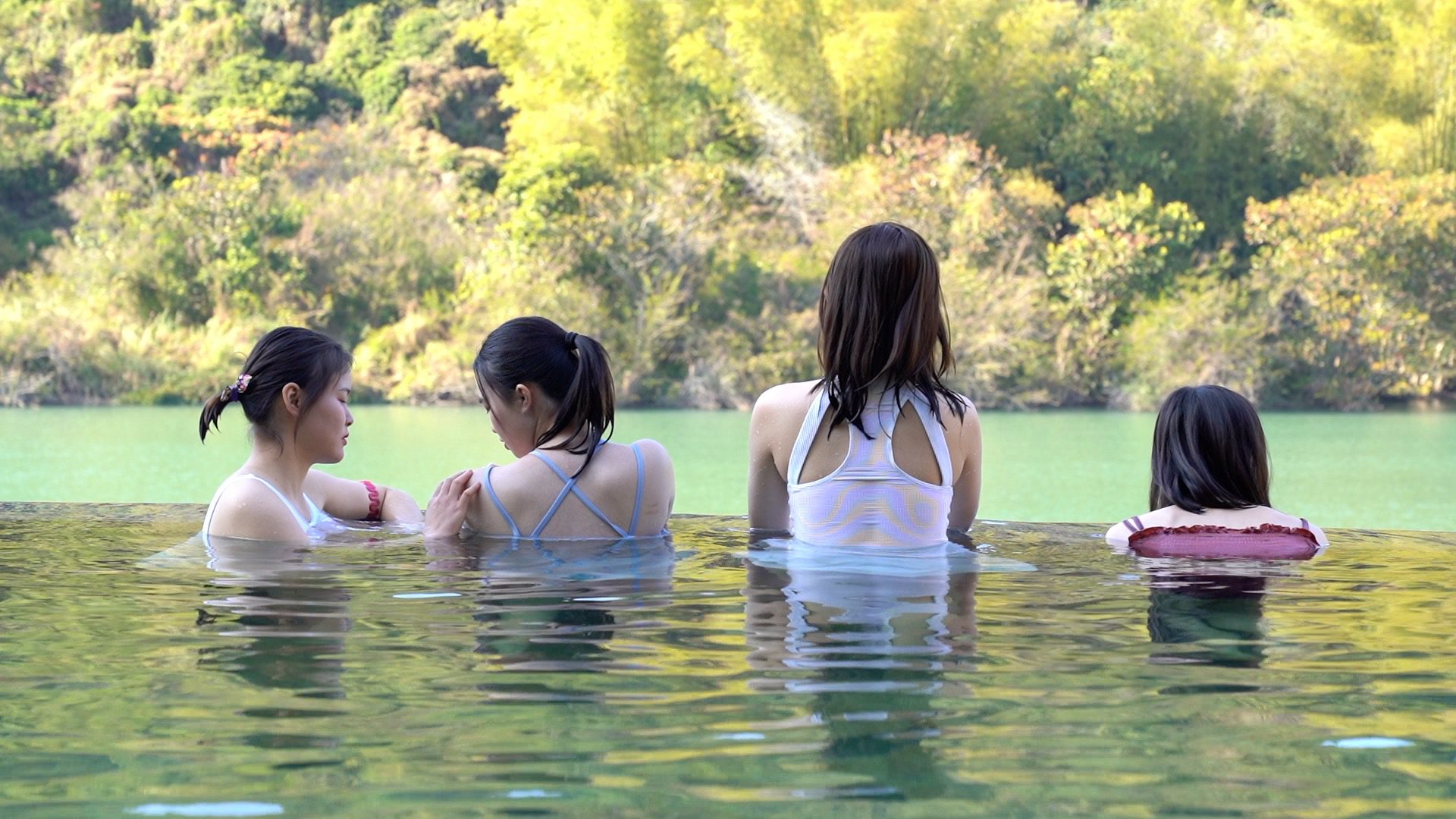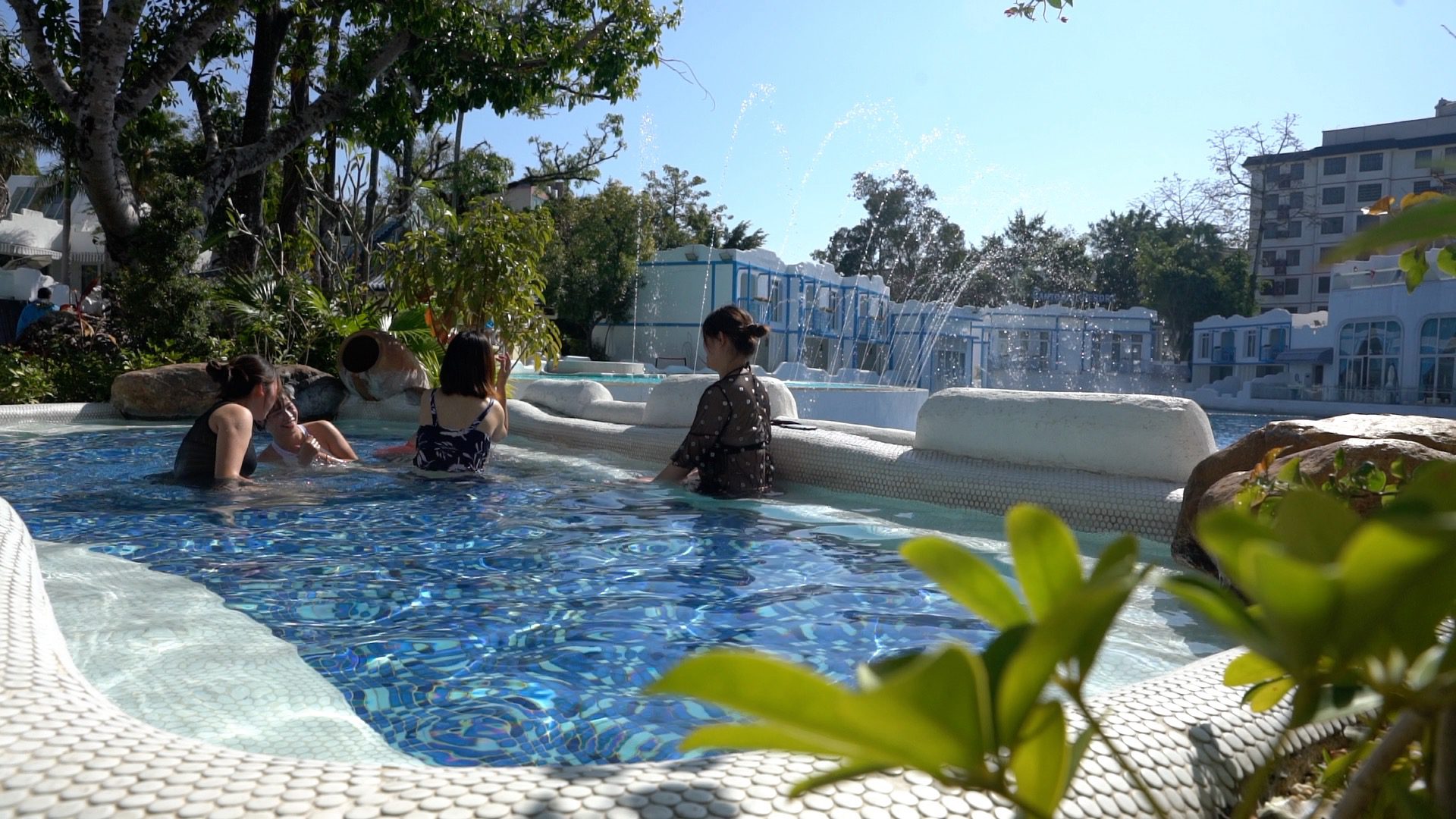03:33

Lu Weixiong has devoted six years of his life to the hot spring industry, a mainstay of the economy in Guangzhou's Conghua District. As the current president of the Conghua Hot Spring Tourism Association, and also the owner of three resorts, Lu saw what Conghua has to offer as a winter getaway.
Lu is proud of local hot springs and think they are up to par with renowned hot spring destinations like Switzerland. "Our hot springs have a unique element, with characteristics that can have benefits for one's health and body. Our waters are tasteless and colorless, while also feeling smooth and comfortable on the skin," he said.
And that confidence holds up with recent figures not only from Conghua but Guangdong Province as a whole. Based on combined media reports, hot spring tourism in the province has continuously ranked first nationwide year round. The province is also home to 17 cities listed as "hot places to visit" during the winter season.
One survey by Chinese Alibaba's online travel agency platform Fliggy, or Feizhu, ranked Guangzhou as the top location for hot springs in 2020 despite the COVID-19 pandemic and the ensuing strict measures and controls. Travel website Lvmama released their latest data, which found a 75-percent increase in corresponding hotel bookings on their platform for the month of December 2020 alone.

Tourists take a soak in Conghua's hot spring, Guangdong Province, China. /CGTN
Tourists take a soak in Conghua's hot spring, Guangdong Province, China. /CGTN
"In 2018 our occupancy rate was about 40 to 50 percent," said Lu. "Now, even during the epidemic period, it's hard to find a room here. Bookings are made a month and a half in advance. That's thanks to some of the renovations and improvements made here to attract more tourists," he added.
Despite an uptick in business, balancing the safety of tourists with the local economy has been a tough act but it's also pushed hotels and hot spring resorts to step outside of the box when it comes to attracting visitors and boosting sales.
"As for local businesses, we've pushed and made changes to online sales and bookings," explained Huang Xiaohai, the Deputy District Chief of Conghua. "Since last October, the hot spring industry here has recovered well. Some hotels were able to make 10 million yuan through online livestreaming promotions," Huang added.
Reflecting on last year and the onset of the COVID-19 outbreak, Huang admitted that the epidemic "greatly impacted" Conghua's hot spring market. But that did not deter businesses and health authorities from finding balanced solutions.
"In terms of health safety, we've increased the daily disinfection of pools, implemented the strict registration of visitors, and limited pools to one family each," said Huang.
"When the outbreak first started, the whole country saw a reduction in the movement of people, and with that reduced flow, there were obviously fewer tourists and less revenue. During last year's Spring Festival, the staff was also in short supply as they had returned home, so in that moment we simply had to strictly implement health regulations and resume business accordingly," explained Huang.
With much of China having contained recently pocketed resurgences of the coronavirus, the optimism in Conghua, an area that has recorded zero cases, remains high, especially for Lu.
"In fact, many of our booked guests are from recent days. You can see the recovery. The hot springs here in Conghua may well usher in even greater success in 2021," he added.
(Zeng Wenxiang also contributed to this story)

